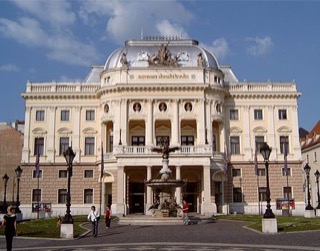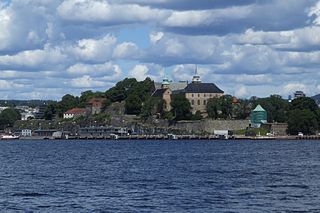NERIS Workshop 2015 - 27-29 April 2015, Milano (Italy)
- Details
- Parent Category: Activities
- Category: Workshops
- Published: Thursday, 21 May 2015 10:23
This Workshop, organised in cooperation with the University of Milano, was an opportunity to discuss and exchange with NERIS Members, International organisations and European Research communities on priorities for the NERIS Platform. The Workshop gathered 68 participants and 37 papers dedicated to the 3 research areas of the NERIS Strategic Research Agenda and the implementation of BSS on emergency and recovery issues were presented.
Please see hereinafter the program of the meeting and the presentations:
Session 1: Challenges in atmospheric and aquatic modelling
- Atmospheric dispersion modelling to locate the source of airborne radioactivity – do we use all the knowhow we have? R. Mustonen – STUK
- The needs for improvement of atmospheric dispersion capabilities for decision support systems – S. Potempski – NCBJ
- Assessment of possible consequences from severe accidents at nuclear power plants in Europe R. Hofman - BOKU-Met
- The impact of different types of atmospheric dispersion model on the extent of estimated countermeasures – P. Bedwell – PHE
- Real-time simulation of the near-range atmospheric dispersion using Computational Fluid Dynamics – L. Vervecken - SCK•CEN & KU Leuven
- Challenges in aquatic modeling in case of accidental radioactive discharges in the marine environment – B. Fievet - IRS[N]/PRP-ENV/SERIS
- Integration of short- and long-term radionuclide transport models for freshwater bodies and coastal waters into JRODOS – E. Gallego - UPM
Session 2: Improvement of existing decision support systems
- Implementation of a method for source term estimation based on measurements and atmospheric dispersion modelling for use in decision support systems - S. Andronopoulos - National Centre for Scientific Research “Demokritos”
- Improving the decision support system JRodos according to customer requirements - C. Landman,W. Raskob - KIT
- SYMBIOSE: A Simulation Platform for post-accidental risk assessment, applications in the terrestrial landscape of the Fukushima region – M. Simon-Cornu - IRSN
- How to use decision support systems in a nuclear emergency? W. Raskob – KIT
Session 3: Improvement of the decision-making-processes and the implementation of the Basic Safety Standards
- Implementation of BSS in Germany – F. Gering – BfS
- Consideration of emergency situations in the new Swiss ordinance on radiation protection – C. Murith - FOPH
- Strategy for Radioactivity Measurements in Radiological Emergency to Improve Decision-Making Processes - T.K. Ikäheimonen - STUK
- Measurement uncertainties and their impact on decision support – J. Camps - SCK•CEN
- Assessing Personal Doses from External Radiation Using Personal Dosimeters with GPS and GIS technologies in Fukushima – W. Naito – RISS
- The OPERRA Project: First Period Main Achievements – J-R. Jourdain - OPERRA Project Coordinator - IRSN
- The importance of operational optimisation in recovery of contaminated terrestrial areas – K. G. Andersson - DTU
- Soil vulnerability maps for predictive purposes in decision making processes for post-accident recovery in Spain - C. Trueba - CIEMAT
- INEX 5 Exercise on Notification, Communication and Interfaces Related to Catastrophic Events involving Radiation or Radiological Materials - H. Burcin Okyar - OECD Nuclear Energy Agency
Session 4: Stakeholder engagement and dialogue
- Societal Deliberation: Formal and Informal Behaviours – S. French - University of Warwick
- Effective management of nuclear emergencies: which social factors may play a key role? C. Turcanu - SCK•CEN
- Health surveillance & practical radiological protection culture: two complementary pillars for improving living conditions in a contaminated territory – P. Croüail - CEPN
- Stakeholder engagement and dialogue and their role in the improvement of the decision-making process – J. Bohunova - VUJE
- The involvement of experts in post-accident management at the service of population: lessons from the Fukushima accident – T. Schneider – CEPN
- Management of contaminated goods in post-accident situations – S. Charron – IRSN & S. Lafage- CEPN
- Stakeholder Engagement in Ireland on Radioactive Contamination of Food – V. Smith - EPA
- Stakeholder involvement and local preparedness and communication strategies – views and experiences from Portugal (a non-nuclear country) - M. Baptista - IST
- Local-national forum for emergency and recovery strategies – tool for local emergency and recovery plans - I.M.H Eikelmann - NRPA
- Fukushima: Four Years of Academic Community Support to the State Efforts of Improving People’s Lives in the Post Accident Conditions – K. Nanba - Institute of Environmental Radioactivity, Fukushima University
Session 5: Information and social media
- Managing the complexity of societal needs in a nuclear emergency situation: towards further experts collaboration for the “enlightened protection of populations” – Y. Marignac - WISE-Paris
- Information and participation of local populations in a post-accident situation: a social path for recovery - insights from the PREPARE European research project – S. Baudé - MUTADIS
Session 6: Research coordination and round table discussion
- MELODI / CONCERT – T. Jung - BfS
- ALLIANCE – T.K. Ikäheimonen - STUK
- EURADOS – Paola Fattibene ISS


 The PREPARE Dissemination Workshop "Innovative integrative tools and platforms" will be organised on January 20-22, 2016 in Bratislava (Slovak Republic).
The PREPARE Dissemination Workshop "Innovative integrative tools and platforms" will be organised on January 20-22, 2016 in Bratislava (Slovak Republic). This Workshop, organised in cooperation with the University of Milano, will cover the State of the art and Needs for further research for emergency and recovery preparedness and response.
This Workshop, organised in cooperation with the University of Milano, will cover the State of the art and Needs for further research for emergency and recovery preparedness and response. The Euratom NERIS-TP research project on “Preparedness for Nuclear and Radiological Emergency Response and Recovery” starded in February 2011. The objectives of the project were firstly to solve urgent research needs such as the implementation of the new ICRP recommendations in the simulation models, the coupling of decision support systems such as ARGOS and RODOS to early notification systems and to carry out research activities to improve emergency management on the local and the national level, and secondly to support the operation of the NERIS Platform in order to make it sustainable in the long term.
The Euratom NERIS-TP research project on “Preparedness for Nuclear and Radiological Emergency Response and Recovery” starded in February 2011. The objectives of the project were firstly to solve urgent research needs such as the implementation of the new ICRP recommendations in the simulation models, the coupling of decision support systems such as ARGOS and RODOS to early notification systems and to carry out research activities to improve emergency management on the local and the national level, and secondly to support the operation of the NERIS Platform in order to make it sustainable in the long term.